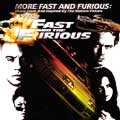Access Denied! Page 2
 More recently, Universal Music Group used CDS for its first copy-protected U.S. title, More Fast and Furious (a sequel to the soundtrack of the movie The Fast and the Furious). But unlike BMG, Universal openly acknowledged the copy protection on both the packaging and an insert card, stating that the disc might be incompatible with some CD players. The label also instructed its retailers to accept any disc returns and to give refunds to anyone who had problems.
More recently, Universal Music Group used CDS for its first copy-protected U.S. title, More Fast and Furious (a sequel to the soundtrack of the movie The Fast and the Furious). But unlike BMG, Universal openly acknowledged the copy protection on both the packaging and an insert card, stating that the disc might be incompatible with some CD players. The label also instructed its retailers to accept any disc returns and to give refunds to anyone who had problems.
It's not known how many discs have been released with copy protection worldwide. Macrovision claims that the major labels have sold millions of discs that use SAV3 with no complaints about compatibility. SAV3 is one of the more flexible and liberal systems since only computer copying is prevented. Sony DADC says 10 million discs comprising 500 albums have been released with its key2audio system, which prevents PC playback or copying. It, too, claims that complaints have been negligible. Yet key2audio might be responsible for the troubles I and others experienced with last summer's Celebrity from 'N Sync, released by Zomba Records. That CD appeared in British, American, and European versions, each containing a different number of tracks and using varying degrees of an unidentified copy-protection scheme believed by many experienced observers to be key2audio.
Rights and Wrongs Rather than unleash a barrage of copy-protected titles here in the U.S. and face a series of stiff legal challenges, the major labels have chosen to fight the early skirmishes in Europe. As of early February, Universal's More Fast and Furious was the only copy-protected CD released in the U.S. with full disclosure of possible playback problems.
The labels chose Europe as the target for these draconian measures because CDs are much more expensive there, providing an extra incentive for people to make multiple copies on inexpensive computer burners and blank discs. And unlike the U.S., European countries have no legal mechanism in place that authorizes consumers to make digital copies in exchange for a royalty.
Here in America we have the 1992 Audio Home Recording Act (AHRA). In this compromise between the electronics and music industries, Congress levied a royalty payment on standalone digital-audio recorders and blank media. The royalty, which is included in the purchase price of the products, goes to compensate content owners and artists for the copies buyers are presumed to make.
Although it's easy enough to use a CD-ROM drive to copy a CD onto a hard-disk drive, computers were not included in the AHRA because Congress deemed them to have "substantial noninfringing uses" under copyright law, such as backing up data. Few in 1992 could have foreseen how the emergence of Internet file sharing and data-compression schemes such as MP3 would encourage many people to use their computers to make cheap, royalty-free copies of CDs. Fewer still could have envisioned the impact all of that copying would have on the recording industry's worldwide sales and revenue. Not surprisingly, the personal computer is now the main target for copy-prevention systems.




























































